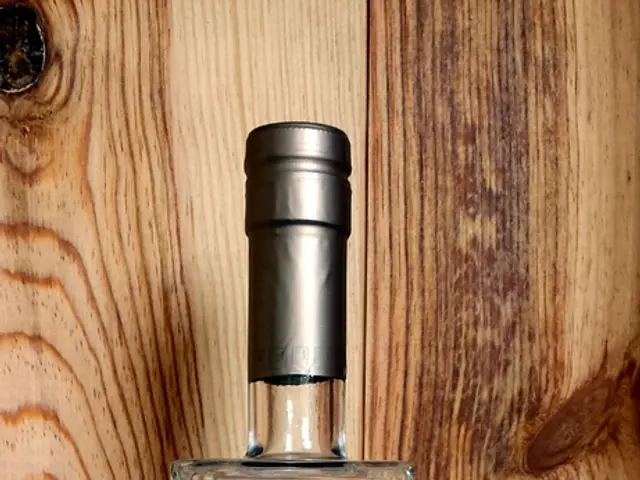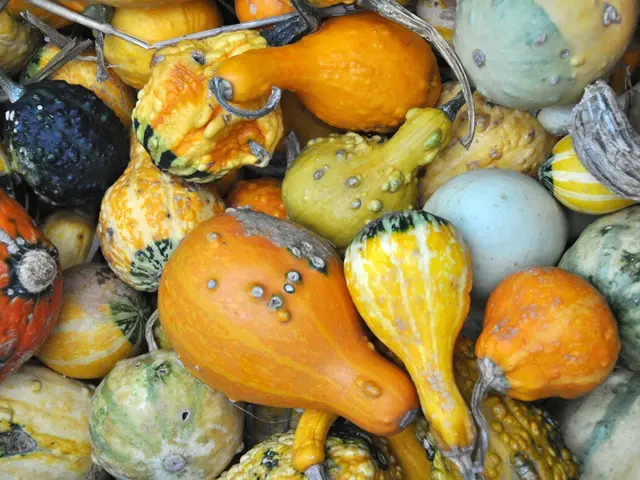Saltwater Detoxification: Evaluating Efficacy and Potential Hazards
In the quest for a healthier lifestyle, many turn to unconventional methods such as saltwater flushes, marketed as a means to maintain colon, kidney, liver, and overall health. However, medical experts caution against this practice, as it carries potential risks and is not supported by scientific evidence.
Instead, focusing on natural methods that support these organs' functions without the risks linked to harsh cleanses like saltwater flushes or colon hydrotherapy is advisable.
**Colon Health Alternatives**
A high-fiber diet rich in fruits, vegetables, whole grains, and legumes promotes regular bowel movements and helps clear the colon naturally without harsh laxatives. Hydration, through drinking plenty of water, also supports digestion and waste elimination effectively. Consuming probiotic-rich foods or supplements helps maintain a healthy gut microbiome, which supports colon health.
**Kidney Health Alternatives**
Adequate daily water intake supports kidney filtration and reduces the risk of kidney stones. Maintaining electrolyte balance through diet and hydration helps kidney function. Reducing excessive salt and certain proteins protects kidneys from additional strain.
**Liver Health Alternatives**
Consuming foods high in antioxidants, such as beets, carrots, and ginger, supports liver detoxification pathways. Green tea and Vitamin C, both with antioxidants, protect liver cells and enhance detoxification. Limiting alcohol, processed foods, and environmental toxins reduces liver stress.
**Overall Health and Detox Support**
Hydrating electrolyte drinks, like cucumber and mint blends with a pinch of salt, support hydration and electrolyte balance without harsh effects. Natural laxatives such as prunes or psyllium husk fiber gently promote bowel movements. Maintaining a balanced diet and exercise sustainably supports all organs’ functions more than aggressive flushes.
In light of these alternatives, it's clear that the body can cleanse and flush itself of toxins and waste without additional help, so a saltwater flush is not necessary. Potential health risks associated with saltwater flushes include dehydration, electrolyte imbalance, and organ failure.
Ingesting a saltwater flush can lead to potentially serious symptoms such as dehydration, electrolyte imbalance, and organ failure. A saltwater flush involves drinking warm water mixed with noniodized salt. Pregnant or nursing people and children should also avoid saltwater flushes, as should those with high blood pressure, digestive issues, and kidney or heart disease.
It is important to consult a doctor before trying any new home remedies or treatments, as the risks may outweigh the potential benefits. Excessive sodium intake from a saltwater flush can cause dehydration and electrolyte imbalance, making it dangerous for those mentioned above.
In conclusion, adopting a balanced diet, regular exercise, and staying hydrated provides a safer and more effective approach to maintaining colon, kidney, liver, and overall health, as opposed to the potentially risky practice of saltwater flushes.
- A high-fiber diet can promote regular bowel movements, thus supporting colon health naturally.
- Hydration through drinking plenty of water is essential for digestion and waste elimination.
- Probiotic-rich foods or supplements can help maintain a healthy gut microbiome, which is beneficial for colon health.
- Adequate daily water intake supports kidney filtration and reduces the risk of kidney stones.
- Maintaining electrolyte balance through diet and hydration is essential for maintaining kidney function.
- Reducing excessive salt and certain proteins helps protect kidneys from additional strain.
- Consuming foods high in antioxidants supports liver detoxification pathways.
- Green tea and Vitamin C protect liver cells and enhance detoxification.
- Limiting alcohol, processed foods, and environmental toxins reduces liver stress.
- Hydrating electrolyte drinks, like cucumber and mint blends, support hydration and electrolyte balance without harsh effects.
- Natural laxatives such as prunes or psyllium husk fiber can gently promote bowel movements.
- Maintaining a balanced diet and exercise sustainably supports all organs' functions more than aggressive flushes.
- The body can cleanse and flush itself of toxins and waste without additional help, so a saltwater flush is not necessary.
- Potential health risks associated with saltwater flushes include dehydration, electrolyte imbalance, and organ failure.
- Ingesting a saltwater flush can lead to dehydration, electrolyte imbalance, and potentially serious symptoms.
- Pregnant or nursing people and children should avoid saltwater flushes, as should those with high blood pressure, digestive issues, and kidney or heart disease.
- It is important to consult a doctor before trying any new home remedies or treatments, as the risks may outweigh the potential benefits.
- Excessive sodium intake from a saltwater flush can cause dehydration and electrolyte imbalance, making it dangerous for those mentioned above.
- In light of these alternatives, focusing on natural methods is a safer and more effective approach to maintaining overall health.
- For chronic diseases like COPD, ulcerative colitis, diabetes, bipolar disorder, migraine, cancer, chronic kidney disease, and neurological disorders, it's crucial to seek therapies and treatments recommended by medical professionals.








